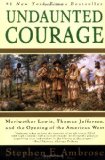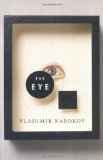Book Review: The Wind-Up Bird Chronicle by Haruki Murakami
August 11, 2008

Murakami’s complex metaphysical tale of self-reflection, betrayal, connections and synchronicity resonates with the weight of the Japanese psyche and twines over itself with skillful precision, but still leaves a stain of emptiness in its wake.
What we have is a series of elements: a wayward cat, a dull-as-dishwater–and inert–unemployed protagonist, an absconded wife, a brutal politician-economist-power-mad-brother-in-law, and a curious central fulcrum of 1930s Manchuria (or Manchukuo, as the Japanese puppet state was called).
Murakami leaves the connections as yours to plug in to each, though he does offer some occasional exposition. Meaning blinks in and out of characters’ lives, leaving them vacillating between banal nothingness (so effetely expressed as to make the reader want to slit their own wrists) and profound–if inscrutable–psychological journeys in which they make supernatural visits to hotels and witness the mass execution of zoo animals. All as Murakami tightens the laces connecting events seemingly discrete in content, time and geography.
There is something haunting and meaningless in the web of meaning spun in “Wind up Bird”. One is hard-pressed to forget that Toru Okada, the protagonist, is wholly unremarkable. His apathy runs deep and his days are mostly naps. The disappearance of his wife seems to be the central concern of the novel, but Okada never makes you believe in his loss more than as something to motivate the increasingly bizarre underworld he slips into.
The problem with this book is that, in the way that some of its characters lose their meaning, it left me feeling hollow. A kind of quiet madness. A creeping futility. There is such mundanity in Okada’s real world that without the awful, often viscerally violent things that happen to him and his orbiting co-characters, there would be no point in his existence. That is, Okada is saved by the terrible, magical things that happen to him–they’re better than the other, reality-based possibilities.
LibraryThing Tags:
| japan, japanese, fiction, novel, 20th century, magical realism, metaphysical, manchuria, manchukuo, read, readin2008 |
As always, see all of my reviews on LibraryThing.
One Comment
Recently Reviewed
Get the Books
Read my Reviews
Related Posts
- Book Review: “The Thousand Autumns of Jacob de Zoet” by David Mitchell
June 28, 2010 - Book Review: "Divisadero" by Michael Ondaatje
September 23, 2008 - Book Review: "Peripheral Vision" by Patricia Ferguson
December 19, 2008 - Book Review: The Monsters of Templeton by Lauren Groff
August 11, 2008 - Book Review: "Wonder Boys" by Michael Chabon
August 20, 2008






I totally agree with your assessment of the problem with this Murakami. My suggestion would be to try Kafka on the Shore. Just as magical and gripping, but slightly less soul destroying in my opinion.